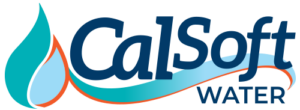When it comes to understanding your water quality, terms like TDS and water hardness can sound a bit technical. But don’t worry—we’re here to break it all down in simple, everyday terms! Let’s dive into what these terms mean and how they affect your water. Then, we’ll show you how CalSoft Water Systems can help you enjoy cleaner, softer water in Santa Maria, CA, and surrounding areas.
What Is TDS?
TDS stands for Total Dissolved Solids, which refers to the amount of dissolved substances in your water. These can include minerals like calcium and magnesium, but also salts, metals, and even organic materials. Essentially, TDS is a measure of everything in your water except pure H₂O.
What does TDS mean for your water? A high TDS level doesn’t always mean your water is unsafe, but it can affect the taste, odor, and clarity. Think of that metallic or bitter taste you sometimes notice in tap water—that’s TDS at work!
Related Article: Is Tap Water Ruining Your Favorite Recipes? RO Water is the Perfect Solution!
What Is Water Hardness?
Now, let’s talk about water hardness. Hard water is caused by high levels of calcium and magnesium in your water. These minerals aren’t harmful to drink, but they can wreak havoc on your plumbing, appliances, and even your skin and hair.
How do you know if you have hard water?
If you know what to look for, it will be pretty obvious. Most homeowners with hard water notice one or more of the signs listed below:
- Soap doesn’t lather well.
- You notice white, chalky spots on dishes or shower doors.
- Your clothes feel rough or look dingy after washing.
- Your skin feels dry and your hair looks dull.
What should the hardness of water be? Ideally, water hardness should be between 0-3 grains per gallon (gpg) for soft water. Anything over 7 gpg is considered hard water, and that’s when you’ll likely start noticing problems.
Is TDS the Same as Hardness?
Great question! While TDS and hardness are related, they’re not the same. Water hardness specifically measures calcium and magnesium, while TDS measures all dissolved solids, including minerals, salts, and metals. In other words, hardness is just one part of the bigger TDS picture.
Why Do TDS and Water Hardness Matter?
Both TDS and water hardness impact your daily life more than you might realize.
- High TDS levels can affect the taste of your drinking water and the performance of filtration systems.
- Hard water leads to costly repairs, higher energy bills, and frustrating issues like soap scum and dry skin.
If you’re experiencing any of these issues, it’s time to think about a water treatment solution.
Related Article: The Cost of Poor Water Quality: Hidden Expenses and Long-Term Effects
How CalSoft Water Systems Can Help
Whether you’re dealing with hard water, high TDS, or both, we’ve got you covered. At CalSoft Water Systems, we specialize in finding the perfect water treatment solution for homes in Santa Maria, CA, and surrounding areas like Nipomo, Arroyo Grande, Grover Beach, Pismo Beach, Oceano, and Paso Robles.
Here’s how we can help:
- Water softeners to eliminate hard water issues and protect your home from scale buildup.
- Water softener exchange tanks so you can enjoy the benefits of soft water without having to install or maintain a traditional water softener.
- Reverse osmosis (RO) systems to reduce TDS and give you clean, great-tasting water.
- Expert guidance to help you understand your water quality and choose the best system for your needs.
Improve Your California Home’s Water Quality Today
Don’t let hard water or high TDS ruin your day—or your appliances! Contact the water treatment experts here at CalSoft Water Systems today for a free water quality consultation. We’ll help you enjoy softer, cleaner, and better-tasting water, so you can feel confident in every sip and shower. With CalSoft, better water is just a phone call away!

